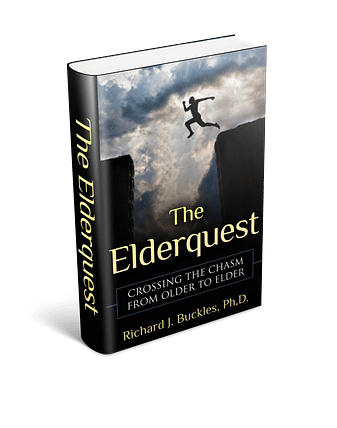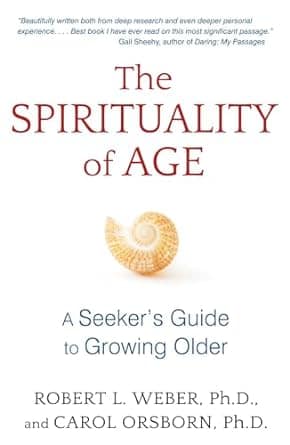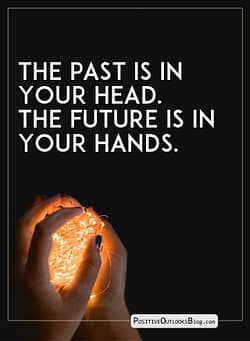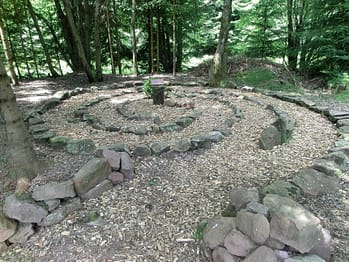The Elderquest
What profound changes will you face in your life in the days during and after your transition to retirement?
The Elderquest is a personal journey that allows you to face the changes that you will inevitably encounter. Your journey is a quest to discover the positive aspects of aging.
The Elderquest is a chance to move beyond the limited view of chronological age and emphasize attaining a greater sense of purpose and life satisfaction. To highlight that there are both gains as well as losses in aging, and it's time to focus on the gains.
It's an opportunity to give new understanding to the existential questions that occur, that is, life's meaning, life's limits and the notion that we continue to develop throughout our life cycle.
Want to Know More About How to Prepare for Making Your Transition to Retirement and Elderhood ? Are You REALLY Ready for Retirement?
Click Here to Get Your Report Now!

"Old Age is like everything else. To make a success of it you've got to start young!" Theodore Roosevelt
If you are between the ages of 45 and 65, chances are you've already started thinking about how you're going to prepare for retirement. So, an important question is, how do you want to age? How do you want to grow as you age? How are you going to live?
The Elderquest looks at aging from an individual point of view. It will describe a process, a set of steps that allows you to ask the deep questions of "How can I best prepare to live out the extra years of my life?" "What will my place in the world be?" "What does the future hold for me?"
The Elderquest is a journey wherein you can seek insights into and answers about your future. A place to discover what your life will be like as you age. A new narrative for how to retire and age successfully. An alternative to traditional ways of looking at aging as decline and age 65 as the end of growth and development.
The Elderquest is a search for wisdom, connection and integrity as we age. It is an imaginative approach for reflecting on the experience of aging - one that is mentally stimulating and appealing to people of many ages as they each travel their own life journey.
We are living in the age of the longevity revolution. Where we have the gift of an additional 15, 20, or even 25 extra years of mostly healthy, productive living. It is a whole new life stage that precedes and outlasts the final stage.
It comes during that new gift of years when we are still vital, still curious, still relatively healthy and active, and most importantly, still growing emotionally and intellectually. And it comes at a time when we are developing a broader, deeper and more carefully considered perspective on the meaning and value of life.
The elderquest is a rite of passage. It's based on the ancient rite of the "quest," or the "heroic journey."
The elder hero, however, behaves differently from the younger one. Their actions are generally both inward and outward, backward and forward looking, slow and intentional rather than fast and impetuous. But their actions are just as heroic, for the stakes are high, time is short, the flesh grows weak, and they must help prepare the ascendancy of the next generation.
(Partially adapted from Dr. Charles Nicholas and the Gerontology Institute, Boston, MA)
It's been said that there are two certainties in life: death and taxes. But I think there's a third: the most fundamental law of human nature is..."each and every day....we're getting older and older." Every day is one step further away from adulthood and one step closer to "old age."
Plus, we are living in the "Longevity Era" where life expectancy of 20-25 extra years beyond retirement are possible. One of the most critical question to ask is, how will you deal with these extra years, thie "longevity bonus"?
Although we try hard to deny it, society today is structured to focus on youth and staying young; and, in spite of our society's heroic efforts, we are reminded of those famous words, "Time goes, you say. Alas, time stays, we go."
One of the most cataclysmic events in history is taking place right now: over 110 million people are on the verge of retiring. 10,000 people a day turn 65! Plus, more than 1/3 of all Americans are over the age of 50!!
It's easy to grow old. For most people it just involves doing nothing. That is, doing what we normally do: let the law of "1-day" just take effect. Then, after enough "1-days," we look in the mirror and ask, "Where did the time go?" "What did I do with my life?"
"Over the hill." "Out to pasture." "Twilight years." "Retired."

The aged and elderly are, by and large, unwanted in our society. Here, we grow old and shuffle ourselves off, or get shuffled off to a retirement community or to an assisted living arrangement. There are no rituals or rites of passage to becoming an elder. It's hard to become an elder because it is not valued in our society.
This raises serious questions about how we want to age and when we should seriously start to think about it?
The Elderquest is one approach.
Five fundamentals of The Elderquest
If you are under 45 years old, you need to start thinking about it...now. If you are over 45 years old, you need to start preparing for it...NOW!!
How do we do that? Most of us tend to ease into old age or into becoming older. We may carefully plan our financial future but few ever think to plan our emotional or psychological future. I think there's a better way to approach "elderhood," one in which we intentionally plan for it; one in which we anticipate, craft and create a future that can have more meaning, happiness, and engagement.
The real issue, for me, is to become aware that going from work to retirement involves a well-thought-out transition process. I believe that shortly after the day we retire, we will face some of the most impactful changes that we've ever experienced in life. And as Teddy Roosevelt said, if we want to be successful we need to start early. WE MUST PREPARE.
Dr. Bill Thomas, a Geriatrician, has some invaluable insight into issues of aging and, particularly for his idea that we must begin thinking about reframing our notions about aging by making the transition from "adulthood" to "elderhood."
The following is a speech he made at TEDxSF recently. I think you'll enjoy him.
Elderhood
Elderhood is defined in the dictionary as "The state, quality, or condition of being an elder." Somehow, that doesn't tell me anything about what elderhood is. I prefer the description of elderhood as described in the Mankind Project:
"Elderhood is about the gifts that age bestows; gifts unique to those who have lived long enough to have learned much of what life is all about, and remain curious about what's yet to come. Elders have seen the cycles of life, have witnessed the ebb and flow, and have gathered insight and learning from their experience as to what works and what doesn't."
"Elderhood is like the ability of the roman god, Janus, who was, at the same time able to see back into the past and forward into the future, yet remain grounded in the present. It takes many years to amass the wisdom this feat requires. Some never reach that place."
Elderhood is about...
I believe this is a truer reflection of what elderhood is all about. A critical question, though, is how do we achieve elderhood? How do we make that journey? How will we cross that chasm...from adulthood to elderhood?
Many will achieve elderhood naturally. Others may never achieve it. Some will choose to follow a path that I chose - a rite of passage.
A rite of passage is described by Steven Foster and Meredith Little of The School of Lost Borders as "...an experience of symbolically passing from one life state to another - to move from letting go to a state of beginning."
True rites of passage are seriously out of favor in our contemporary society. There are many ceremonies that we participate in that often act in the place of rites of passage, such as retirement ceremonies, but they can't really replace them. Why? Because many of them are difficult and time consuming. We prefer to read about them in our literature or in the National Geographic; or watch them on the History channel or in the movies.

The Quest
Quest, from the Latin, "quesitum" to seek or to ask. It was originally used by 19th Century European Anthropologists to describe the practices of many of the ancients, the religious prophets, eastern gurus, and Native Americans for the rituals of isolating themselves from their societies and fasting for short periods of time in order to seek some form of both enlightenment and signs of their future or their tribe's future.
A rite of passage - an experience of symbolically passing from one life stage to another; to move from letting go of one state to the beginning of another.
But, what is a Quest? In Native American lore, it's an attempt to achieve a vision of one's future. It's gained through fasting, isolation and meditation. A guardian spirit may be involved. One's vision may not be a literal vision or a dream. It's more likely to be an intuition or a revelation. It is one of the most universal and ancient means to find spiritual guidance and purpose. Consider the experiences of Moses, Buddha, Jesus, and Mohammed, who separated themselves from the world and came away with life changing insights.
Not everyone can and will be open to this sort of experience. One must have, or be willing to develop, the belief that, by participating in a rite of passage such as this, they will achieve something greater and more satisfying for their life.
The Elderquest Process - Focuses solely on making the transition from work to retirement and from adulthood to elderhood. This is achieved by journeying through five stages:
1. PREPARATION-Take time to assess and examine your life - past, present, and future
2. SEPARATION-Take time to separate yourself from your familiar past so that you can pursue your purpose and your future.
3. INITIATION-Take the opportunity to explore and experiment with new ways of thinking and behaving.
4. ASSIMILATION-Find ways to incorporate these new ways of behaving and thinking into your life.
5. ACCOMMODATION- Proceed with life and resolve any difficulties that get in your way.
These can be conducted alone or with a group, in any location, including a remote location or a conference room.
The fundamental goal of the Elderquest is to build the knowledge, foresight, and resources that will allow you to cross those chasms from work to retirement and from adulthood to elderhood. Typical goals are...
Honor the Past -- Live Fully in the Present -- Create a Positive Future
For more information about these programs or any of our Speaking topics, contact Dick Buckles at dick@dickbuckles.com





